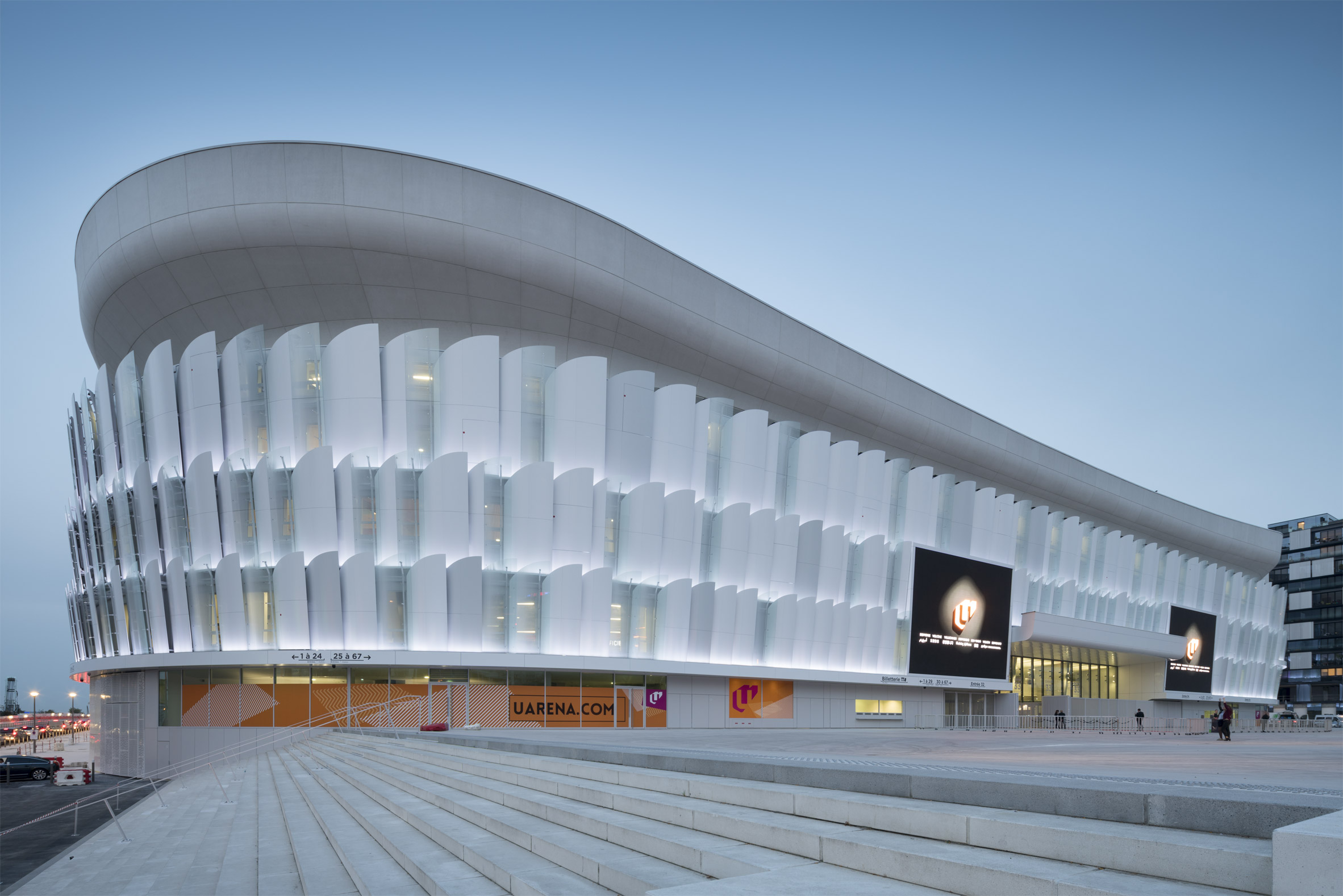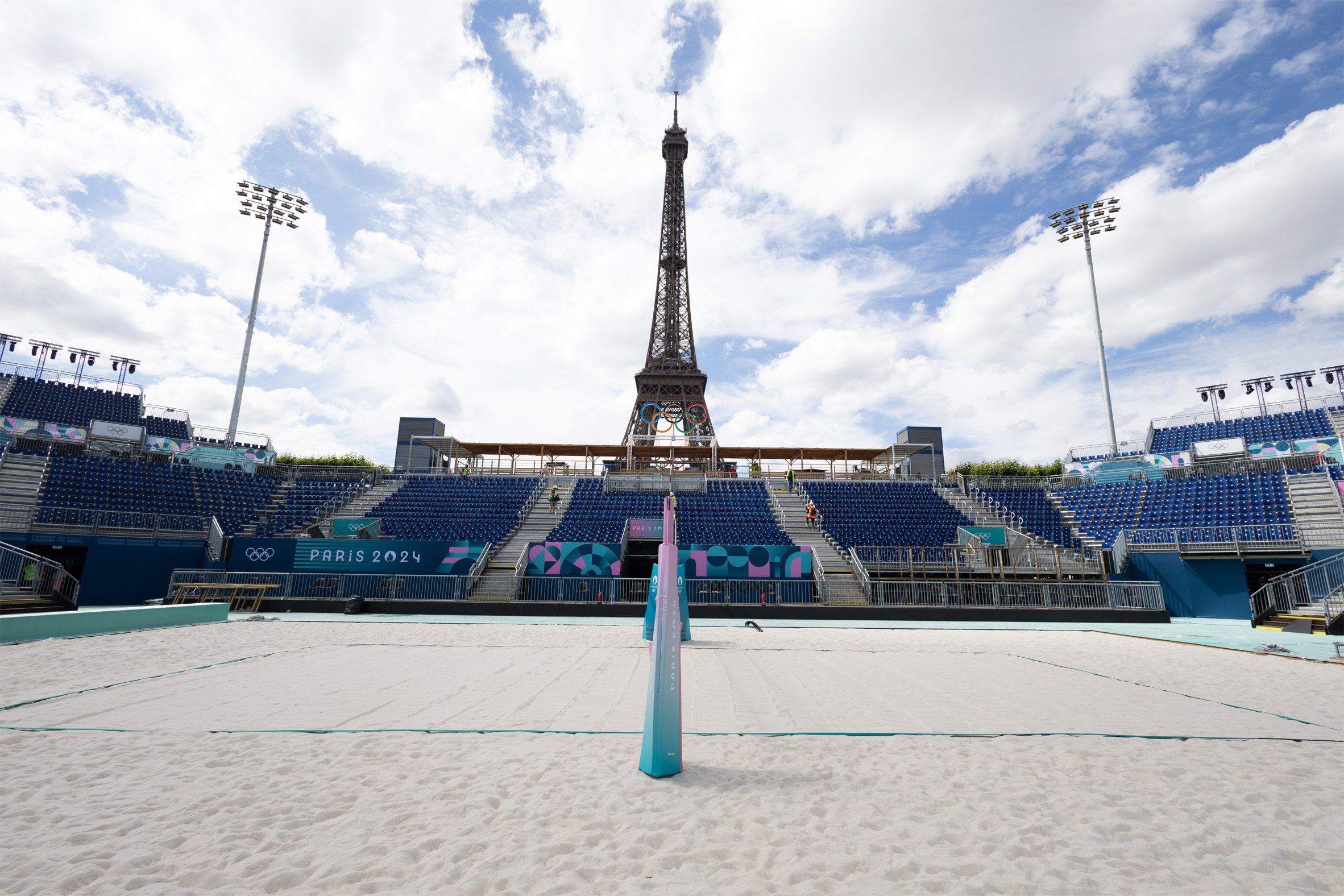Reusing existing venues for Olympics "is not easy" says Populous' François Clément
Paris 2024 comes close to the limit of what is possible in terms of minimising construction for Olympic Games hosted in a single city, explains Populous' François Clément in this Olympic Impact interview. Clément, who has been involved with the Paris 2024 Olympic and Paralympic Games since he assisted the city's bid in 2016, explained
The post Reusing existing venues for Olympics "is not easy" says Populous' François Clément appeared first on Dezeen.

Paris 2024 comes close to the limit of what is possible in terms of minimising construction for Olympic Games hosted in a single city, explains Populous' François Clément in this Olympic Impact interview.
Clément, who has been involved with the Paris 2024 Olympic and Paralympic Games since he assisted the city's bid in 2016, explained that Paris had prioritised using existing venues over new and temporary venues.
"From day one, one of the major concerns of the bid was to reduce to the minimum the use of temporary facilities and increase to the maximum the use of existing facilities," he told Dezeen.
"Big moves bring you the goods"
Notable reuse examples include the renovation of the Grand Palais by Chatillon Architectes, which will play host to the fencing and taekwondo tournaments.
The Paris La Défense Arena – usually used for rugby – will temporarily house an Olympic swimming pool, and Populous has assisted Celnikier Grabli Architectes and OLGGA Architectes in their refurbishment of the historic Yves-du-Manoir Stadium, which was the focus of the games last time they were held in Paris 100 years ago.
According to Clément, this focus on existing buildings is how Paris 2024 has most successfully reduced its carbon footprint.
"The big moves are the ones that bring you the goods," he said. "The work that the committee has done right at the beginning to identify all the venues that could be used was the most important one."

The achievement of the games' organisers in this respect is not to be underestimated, he argued.
"It's not easy because as soon as you start talking about reusing existing venues it means that for six years you have to reorganise, deal with the venue operators and tell them 'well for four months you will not be able to operate your venue', and economically speaking, it's a challenge," Clément said.
"It's much easier to say, 'well, let's go on the Champ de Mars and let's build a temporary facility'," he continued. "Technically it's not really complex, and then it's just a deal with the city of Paris saying, 'Okay, you give us the Champ de Mars for three months or four months'."
"Using the La Défense Arena while there is a rugby club playing there, where there are concerts organised, it's much more complex."
"Those are things that people never talk about because they're not really [visible], but being able to organise all of that is the major aspect of what Paris 2024 and the committee has been able to do."
Global architecture studio Populous has advised on plans for all 38 of the venues to be used during the games. The world's pre-eminent designer of stadiums and arenas, it has worked on every summer Olympic Games since Atlanta 1996.
A timber aquatics centre designed by VenhoevenCS and French studio Ateliers 2/3/4, the Porte de la Chapelle Arena by SCAU Architecture and NP2F and the Marseille Marina are the only newly built permanent structures set to be used as Paris 2024 venues.
"While in London 'legacy' was really important, in Paris, the committee was trying to reduce that to the minimum," he added.
"If you look at what has happened in Paris 2024, you have only three new venues that have been developed and that could be accepted as a legacy – but they were actually planned before the games."
"We are toeing the line of five stars"
Alongside these existing and new structures, a number of temporary facilities have been erected for Paris 2024, including a stadium in the shadow of the Eiffel Tower on the Champ de Mars that will host the beach volleyball event before being dismantled.
These continue to be made from relatively high-carbon steel and aluminium, Clément explained, because of the durability of these materials and their capacity to be reused multiple times before being recycled.
"There has been a lot of research on trying to see if timber could be used, but currently, aluminium and steel remain the really simple – and potentially the most not only economical but environmentally friendly option, because you can reuse them for certain numbers of cycles," he said.
While he believes that Paris 2024 comes close to the ceiling of what's feasible in terms of reuse, Clément suggested that reducing the use of these temporary stadiums would be the best way to further limit the carbon impact of future Olympics.
"I think that we are toeing the line of five stars," he said. "You could push it to try to reduce even more the use of temporary facilities, and increase even more the use of existing facilities."

But that opens up an important question, he posits. The high and unusual demands of hosting Olympic events – which attract large crowds for even the most niche of sports – means finding existing buildings that are suitable venues is very difficult.
"Then it's complex, because suddenly it raises the question of the localisation of the events," said Clément.
"That means that suddenly, are the games organised by city, or are the games organised by a consortium of cities?"
Already, Paris 2024 has had to look beyond the City of Light to find suitable venues for all 32 sports – and London 2012 did the same.
Some sustainability experts argue that the Olympics can no longer be hosted by a single city if the games are to keep to planetary boundaries.
Clément is torn. "I believe that being able to harvest all the facilities that are existing is really important. I mean let's never forget, it's a temporary event that goes on for four weeks," he said.
"But let's also reflect on what has happened recently. Euro 2020, which was organised in several cities – yeah, it was good, but there's also that impression of loss of soul."
More broadly, he suggested that the conversation about cutting the environmental impact of sporting events should not focus on the Olympics.
"Something that we always forget is that it's really important for that to happen in major tournaments, but in every national league, being able to reduce the carbon footprint of those leagues is also extremely important," he said.
"Because they are there all the time – they're not there every four years."

Olympic Impact
This article is part of Dezeen's Olympic Impact series examining the sustainability measures taken by the Paris 2024 Olympic and Paralympic Games and exploring whether major sporting events compatible with the climate challenge are possible.
The post Reusing existing venues for Olympics "is not easy" says Populous' François Clément appeared first on Dezeen.
